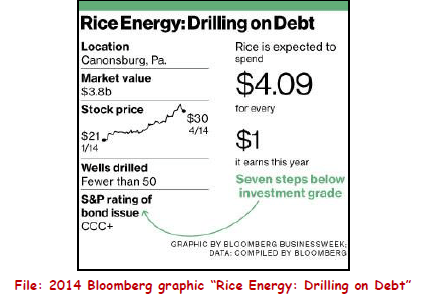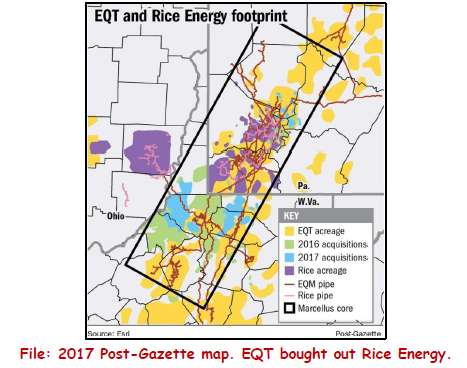Comment by a rural Albertan:
The [Ohio] regulatory system allows for a oil & gas related trespass to be be adjudicated directly by the court system.
In Alberta this type of trespass must go through the oil & gas regulatory system and only after that lengthy process can that quasi-judicial decision be appealed to a real court because of questions of jurisdiction or legal errors. The effect of the Alberta regulatory system is to actually place a barrier between a complainant and access to the real courts. If the Alberta regulatory system is efficient at regulating anything it might be seen as being effective at regulating a citizen’s access to a real court. In a more perfect world the main function of the Alberta regulator might be viewed as government sanctioned obstruction of justice mechanism that is designed specifically for the benefit of a specific industry.

Belmont County Landowner Gets $40M Verdict In Drilling Dispute by Robert A. Defrank, July 9, 2021, The Intelligencer
Rice Drilling D LLC and Gulfport Energy will pay a local landowner about $40 million after a jury found the companies went beyond the bounds of their land lease.
The trial began Tuesday before Belmont County Common Pleas Judge John Vavra. The jury deliberated for about three and a half hours before finding in favor of compensation for trespassing and damages to the plaintiff, Tera LLC, owned by Thomas Shaw.
“I think in the history of Belmont County this is probably the largest jury verdict ever,” Vavra said.
Tera entered into an oil and gas lease with Rice Drilling seven years ago. Rice later sold a percentage of the lease to Gulfport.

There are six wells on the 270-acre property on Belmont-Warnock Road in the Warnock area.
In 2015, the drilling apparently began to exceed the bounds outlined in the lease.
“The lease was very specific, limiting the defendant’s access to two layers of the sub-strata,” Vavra said. “They drilled their wells and started producing gas.”
However, Shaw later looked into the operations through Ohio Department of Natural Resources records and found the companies were drilling beyond those two deposit levels, designated the Marcelus and Utica, and were taking gas from the Point Pleasant level.
The companies were drilling between a mile and a half and two miles down.
“They shouldn’t have gone past what the lease said,” Vavra said.
There were no allegations of environmental or other damage to the property. The damage occurred through taking gas from an area where Tera retained mineral rights. Vavra said the defense argued Shaw had not sustained damage.
The companies will be required to pay $23,171,454.37 for gas taken from the deposit and $18,958,462.25 for gas they will continue to take, totaling $42,129,916.62, with $2,000,559 deducted for royalties, bringing the sum to $40,129,916.62.
“There’s a message to the oil and gas companies to treat landowners correctly,” said St. Clairsville attorney Charles Bean, who represented Tera.
Rice and Gulfport and their attorneys at Steptoe and Johnson could not be reached for comment.

Images above thanks to Bob Donnan of Pennsylvania
